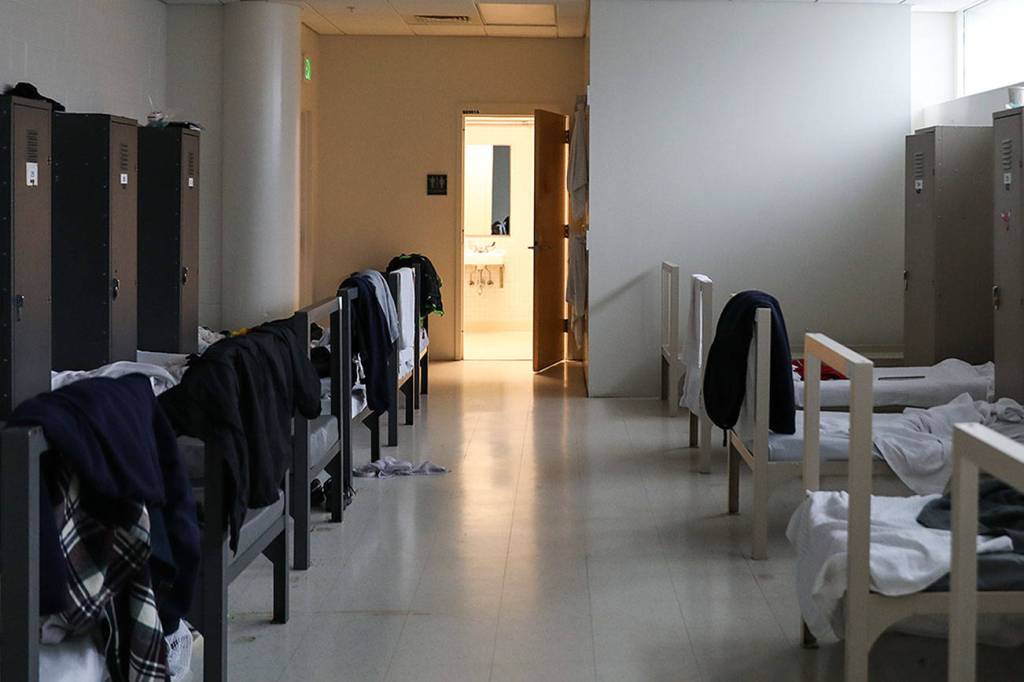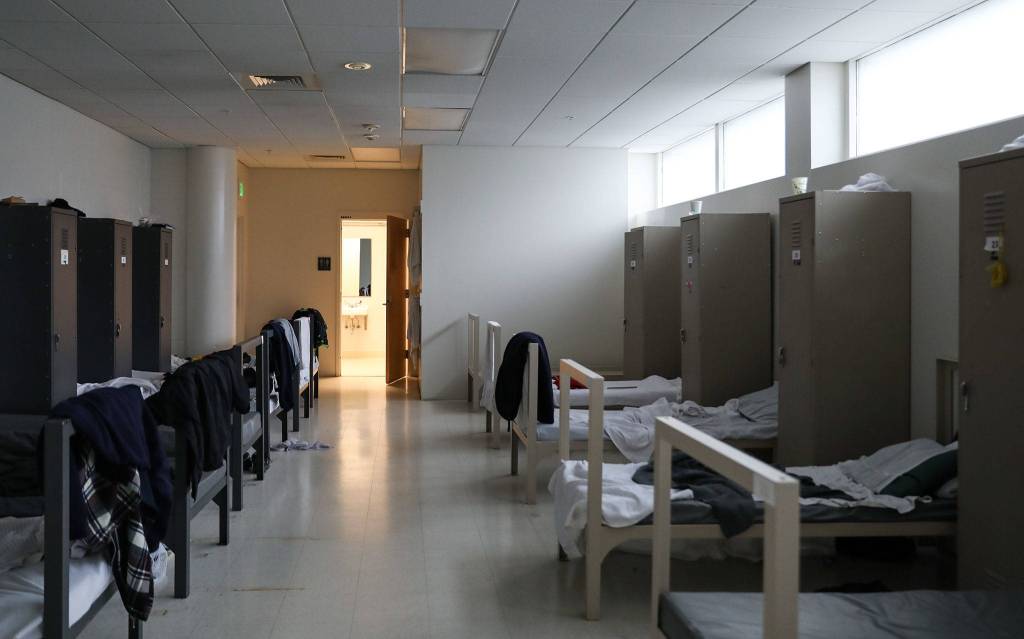Halting the cycle from jail to homelessness
Published 1:30 am Sunday, October 27, 2019


EVERETT — Amanda Whitfield never considered seeking treatment for her addiction until she met a social worker embedded with the Snohomish County Sheriff’s Department.
“It seemed like a daunting uphill battle I couldn’t climb,” Whitfield said.
The thought of having to detox while homeless, then find a bed in a treatment center all while knowing she had no home to return to proved too overwhelming.
Whitfield, who grew up in Everett, spent the last few years bouncing around the county as she battled an addiction to heroin, which she turned to after her doctor stopped prescribing Oxycontin.
The social worker offered Whitfield and her boyfriend, Ryan Morgan, a different path. A warm place to detox at the county’s new Diversion Center as they waited for spots to come available at treatment centers. Then when they finished treatment, that social worker drove them to their new home furnished with bedding and food. Rent was paid in full for the first three months, and half was covered the next three months.
The Diversion Center, a short-term, residential program, diverts the county’s homeless population who are drug-addicted from encampments to treatment, then into housing. All while trying to avoid another trip to jail.
The likelihood of getting people help during a short jail stay is nil, and the likelihood we will see them again is high, said Snohomish County Sheriff Ty Trenary.
“When people break the law we should hold them accountable,” Trenary said. “If the accountability is let’s figure out how to get you clean and sober, let’s figure out how to get you housing and a job. Isn’t that what everyone wants at the end of the day?”
A new report highlights the center’s progress, which shows participants are significantly more likely to be in treatment after leaving the facility.
“I’m excited about the early numbers, but there’s still a lot of work to go,” Trenary said.
The Diversion Center, operated by Pioneer Human Services, opened in 2018 with funds from the state and county. Deputies working with social workers, a team known as the sheriff’s Office of Neighborhoods, refer and bring participants to the facility.
The 44-bed center operates out of the former work-release site at 1918 Wall St.
After an initial medical exam and an intake interview when entering the facility, participants spend time in two common rooms watching television, sleeping and attending recovery meetings as social workers coordinate treatment and housing.
It’s crucial to start recovery as soon as they enter the Diversion Center, said Claire Wilson, program manager at the center.
“What’s unique about this program is that a high percentage of staff are in recovery themselves,” Wilson said. “It offers clients a level of authenticity.”
From July 2018 to this month, 520 people have passed through the program, according to the sheriff’s office.
The recently released data drills down on the first four months the center was open, tracking 192 people. It compared outcomes three months after leaving the center with the same time period prior to enrolling in the program.
The data showed that 82% of participants were enrolled in addiction treatment after leaving the Diversion Center, compared with the 33% who were engaged in treatment prior to coming to the facility.
And the average number of days spent in jail was almost cut in half and nearly half of this group was housed three months after going through the program.
The data in the report is limited. The county said that’s due to a timeline dictated by the Legislature, which required the study as a condition of receiving funding from the state.
The study lacked data on how many people completed treatment, and outcomes beyond three months after leaving the center was unknown. Housing vouchers don’t last indefinitely. At some point participants will have to figure out how to pay rent in a market severely lacking affordable housing.
“If our housing only lasts three to six months, what happens eight months or a year out?” Wilson said. “What happens when they have to pay for their own housing?”
The Legislature kicked in nearly $800,000 the first year the center was opened.
Seeing progress, County Executive Dave Somers intends to keep the program going, including $1.65 million in the draft of the 2020 budget for the facility.
“The system we are setting up gives people a helping hand out of addiction,” Somers said.
He credits developing partnerships between county departments, social service providers and the Snohomish Health District as the key to the program’s success so far.
“You typically don’t see that level of connectedness when working with local jurisdictions, that was really impressive from the get-go,” said Steve Woolworth, vice president of behavioral health for Pioneer Human Services.
The center is being seen as a potential model for other counties, he said.
Months after leaving the Diversion Center, Whitfield is employed and lives with her boyfriend in a clean-and-sober house. The couple was able to find another assistance program to help with rent for another few months, but after that Whitfield predicts they can make it on their own.
“This is a solution to the epidemic,” Whitfield said.
Lizz Giordano: 425-374-4165; egiordano@heraldnet.com. Twitter: @lizzgior.






